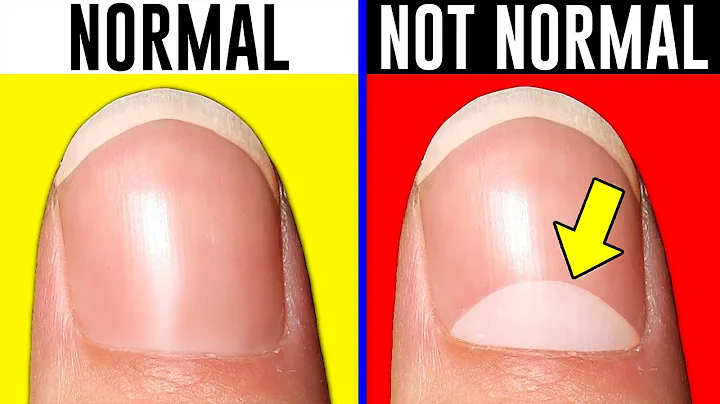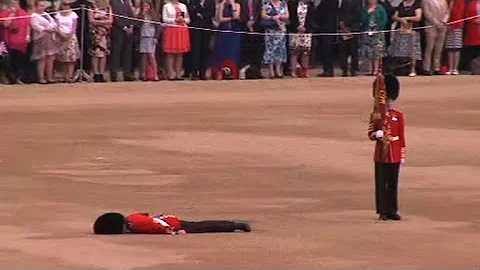On October 15, 1917, such a scene was unfolding on the outskirts of Paris.
A woman wearing red dancing shoes and sheepskin gloves smiled and said to the 11 men in military uniforms in front of her:
"This is the first time someone is willing to pay 11 francs to possess me."

Are they discussing something shameful?
No, in fact this day is the woman's death day, and the francs they call are actually bullets.
With 11 gunshots, everything came to an end.
Who is this woman? What did she do to end up like this?
The woman’s name is Margaretha Giltruida Zeli.
01 Netherlands Sad Girl
In August 11876, Margaretha Giltruida Zeli was born in a small town near Levaden, Friesland, in the north of the Netherlands.
Margaresa's father was a farmer, and her family was in good condition, so even though she was the second child in the family, she was not disliked by her parents.
Under the care and company of her parents, Margareta gradually grew up.
It is worth mentioning that because her father is Dutch and her mother is Javanese, Margareta is very beautiful. Her black hair and olive skin complement each other, which is particularly eye-catching.
At the same time, Margareta's father's investment was successful, and several new members were added to the family, including two younger brothers.

In 1883, as the family's assets increased, Margareta's father decided to move to Leiden to give his children a better life.
's father's decision was correct.
The development of Leiden is much higher than that of small towns, and they have also seen and enjoyed the kind of life recorded in the book.
Although the quality of life has improved, the cost is also increasing day by day.
In order to not affect the family's life, Margareta's father decided to use the remaining savings of the family to rent a shop in the city to sell hats.
Soon, the hat shop opened.
He thought that the business would be particularly prosperous, but he did not realize that the reality was very different from his idea. Not only did he not make any money, he also lost rent, labor, etc.

However, that's not the worst.
It is said that people are most likely to make mistakes when they are forced into a desperate situation. The same is true for Margareta's father. In order to quickly make up for the money gap in the family, he began to speculate in stocks. When
first started, he made a small profit, but as more and more funds were invested, his losses became more and more obvious.
In 1889, his father's friend introduced him to a "good opportunity" and advised him to invest all his family's money in it, and he would definitely make a fortune by then.
Listening to his friend’s assurances, Margareta’s father felt ready to move.
Thinking about the situation at home and the "profit" of this business, he finally failed to resist the temptation of his friends and took out all his savings.
The final result made him regret it. Not only did he not make any money, but he also needed to sell off his property to pay off his debts.
Margaretha's father couldn't bear such a blow, so he moved the family into a slum house, mortgaged the family's mansion, and took the money to Amsterdam with the intention of making a comeback.

Margareta's mother was convinced that her husband would succeed, so she waited painfully, but her husband never came back.
She was just a woman and could not give her children a better life, so she left her daughter with her and entrusted the other children to relatives or the church.
At this time, Margaretha was already sensible. She watched her mother lose her vitality day by day until she died.
After her mother passed away, Margaretha lived alone. Although her life was miserable, she became more and more beautiful and had many suitors.
Perhaps due to her father's influence, Margaretha did not dare to place her happiness on people who liked her appearance, so she rejected these people and planned to find a partner by herself.
In 1895, Margareta got her wish. She found a 22-year-old Dutch naval officer through a marriage advertisement.
The 19-year-old Margareta naively thought that her husband would be angry with him for being so protective of him, but she did not expect that she would be beaten and kicked every day. Margareta originally wanted to break off with her husband, but after every kick, her husband The soft words made her give up such thoughts again.

In this way, amid the kicking and tenderness, Margareta became pregnant.
After having a child, Margareta was even more unwilling to break up with her husband. It was not until 1899 that the accidental death of her son broke up the relationship between the couple.
In 1903, the couple's marriage came to an end, and Margaretha obtained custody of their daughter.
Margaretha originally wanted to give her daughter the best life through her own efforts, but her ex-husband did not agree with the court's decision and stole her daughter privately and flew away.
Margaretha didn't know where to find her husband, and she was left alone. For this reason, Margaretha was depressed for many days.
02 The sensational stripper in Paris
Although life is sad, Margaretha is not willing to give up.
In 1904, Margaretha came to Paris alone. In Paris, she found a circus. Unfortunately, the circus's salary was limited and was not enough for her to live on.

In order to survive and not repeat the same mistakes, Margareta changed her name to Miss Macleod to work part-time as an art model.
Margareta is pretty enough, but due to her part-time job, her pay is not much, so even if she has to work two jobs every day, it is still very difficult for her to live a good life.
Fortunately, this situation did not last long.
After learning that the salary in the theater was several times that of a part-time job, Margareta immediately decided to go to the most well-known local theater manager to discuss cooperation.
Margaretha knew that her beauty was a natural weapon, so after going through various twists and turns and meeting her manager, she used a striptease to attract his attention. The
program was very successful.
After the Paris theater manager saw Margareta's boldness and unique temperament, he was not tired of her recklessness. Instead, he readily reached a cooperation with her and gave her a stage name - Marta Ha. Lee Hari.
Mata Hari was very satisfied with the result. In the following days, she continued to rehearse with her manager for her first performance.

Time flies. On March 13, 1905, Mata Hari made her debut at the Guimet Museum in Paris.
After Mata Hari came on stage, the audience was first impressed by her beauty, and then after the performance started, people were completely fascinated. Mata Hari seemed to have anticipated the audience's reaction, but she was not satisfied with it.
In order to make herself more famous, she made up her identity as a "descendant of Indian monks" and added her own struggle and redemption to the dance.
Although she lied repeatedly, due to the underdeveloped communication methods at the time, people had no way to expose her disguise.
In the end, Mata Hari relied on her fabricated lies to become a well-known stripper in Paris, bringing herself enough fame, wealth and "resources".
Perhaps it was because she had been telling lies for so long that Mata Hari forgot everything in the past, indulged in extravagance, and even became a social butterfly.
03 Double Agent
No matter how others position Mata Hari, Mata Hari always insists on her own opinion.

In 1914, Mata Hari came to Germany for a tour.
At this time, it was the eve of the outbreak of the World War . The situation was not stable, but Mata Hari didn't care, because the reason why she came here at such a time was to make money for herself. Win over a group of people.
Mata Hari thought very simply, but she didn’t know that her life would change dramatically because of this tour.
It turned out that during Mata Hari's tour, there was a special audience in her auditorium, Baron von Milbach, an officer of the German High Command.
Barong's original intention was to relax, but Mata Hari's impromptu performance made him see his talent as a "spy".
In order to use this beautiful spy for himself, after Mata Hari's performance, he gave some tips to the attendant and asked him to pass them to Mata Hari, and told her: "If you have time, you can Let’s share the dinner together.”
After receiving the generous tip, Mata Hari was in a very good mood and agreed to the invitation. Of course, Mata Hari had other plans in mind. She was getting older and it was time to find a "right person."

The two of them have their own plans, so they are very happy when talking.
Later, when she learned that Barong only wanted to ask her to provide information, Mata Hari felt a little regretful.
But when she thought that she would be given 20,000 francs if she agreed, and that money would be given to her later if there was news, Mata Hari agreed without hesitation.
In her opinion, it is easy for her to learn about "big events", and she can get a lot of money just by telling them, so why not do it.
In this way, Mata Hari became a German spy.
With the financial support of the Germans, Mata Hari dressed up more and more colorfully, and relied on her identity to approach senior French officials and military generals to inquire about intelligence.
Relying on the intelligence sent by Mata Hari, the German army took the initiative on the battlefield. However, as the situation on the battlefield became more and more anxious, Mata Hari began to be afraid.
When the two countries entered a stalemate, Mata Hari couldn't guess who would win the final victory.

If it was Germany, then he would not have to worry about food and drink in the future; if it was France, one could imagine the outcome when he found out that he was a German spy.
In order to leave a way out for herself, she began to move closer to France.
The result is obvious. Under Mata Hari's operation, she gained a new identity, a French spy. I have to say that Mata Hari is really "responsible".
After having a new identity, she began to show her sincerity to France and provided a lot of useful intelligence, which caused many German soldiers to stay on the battlefield forever.
Paper cannot cover the fire after all.
04 Exposure, the truth
In 1917, Mata Hari came to Spain to collect intelligence in the name of touring. She originally wanted to use this information in exchange for some money, but unexpectedly, she had already been targeted.
Of course, the target here is not the dancer Mata Hari, but the spy Mata Hari.

Multiple operational exposures have made France realize that there are only traitors in the team. Therefore, France established a counterintelligence agency, which also included its ally, the United Kingdom.
The two countries worked together to eliminate German spies in private. Due to the tight information, Mata Hari in Spain did not know about it.
So, when she obtained the information about Spain, she spread it all to Berlin .
The difference is that this time Mata Hari’s intelligence was monitored, and the worse was yet to come. After receiving the intelligence, the German side sent a telegram to the Spanish liaison personnel.
"Inform H21 to return to Paris immediately and pay a fee of 15,000 francs."
The French counterintelligence agency did not know who H-21 was referring to. Just when they were about to start investigating, they noticed a phenomenon.
A famous French dancer is actually going back to Paris.
For a while, the people in the counterintelligence agency were unsure.
The dancer's behavior of returning to Paris at this moment is too coincidental, but if the people's "choice" is doubted, it will have a bad impact if things get serious.

Adhering to the principle of preferring to kill by mistake rather than letting go, the French counterintelligence agency decided to investigate secretly.
Unexpectedly, this investigation is incredible. Various data prove that H-21 is Mata Hari, and H-21 has brought a lot of intelligence to Germany, causing France to cause a lot of losses.
When the evidence is put in front of them, people can't explain it to her, even if she is a very popular dancer in Paris.
In order to make Mata Hari pay the price, the counterintelligence agency immediately deployed an operation to capture Mata Hari.
In February of the same year, Mata Hari returned to her Paris hotel apartment.
At this time, Mata Hari did not know that her identity had been exposed. After running around for a day, she just wanted to rest inside the house. But when she opened the door, several people swarmed over and subdued her.
When Mata Hari wanted to ask them why they did this to her, one of them said angrily: "I didn't expect you to be such a person. Do you feel comfortable spending German money?"
Listening to this, Marta Hari Ta Hari still didn't understand. She shut her mouth and was taken to the detention center of the counterintelligence agency.

While in prison, Mata Hari thought about many of her consequences. She even felt that she could escape the death penalty because of her identity as a double agent.
However, things did not go her way because her presiding judge hated people like Mata Hari and therefore showed no mercy during the trial.
In addition, with the help of the intelligence chief, Mata Hari's crime was confirmed, and she was sentenced to death .
On October 15, Mata Hari’s life came to an end. This year, she was 41 years old.
05 The head was collected in 1983
Mata Hari left, but the story has not yet come to an end.
Having said that, after Mata Hari was "taken away" by 11 bullets, the person responsible for the execution left.
Logically speaking, if there are relatives alive, the person can be buried secretly, but Mata Hari's mother has passed away, and her father and brothers are nowhere to be found. It is not an exaggeration to say that she is alone.

So, what happened to Mata Hari’s body after her death? Should we just let it go?
In fact, because no one claimed her body, her body was used for medical purposes. It is worth mentioning that her head was processed and stored in the Anatomy Museum in Paris.
It wasn’t until 2000, when Mata Hari’s head disappeared, that the matter came to an end.
No one expected that Mata Hari’s head would be treated like this and kept in a collection for 83 years. Perhaps Mata Hari did not want to bear this kind of “treatment”.
In addition, there is another doubt that people still have no solution to.
Is Mata Hari a traitor or a patriot?
In fact, Mata Hari did not squander all the money she transferred from selling intelligence in Germany. Instead, she established a foundation and used it to build her hometown.
What Mata Hari did was definitely wrong, but if you think about it carefully, it seems that not all of what she did was wrong since she became a double agent.
In 2003, the historical series "Mata Hari" adapted from Cowles' new book became very popular in France, and many people believed that it could vindicate Mata Hari's name.

People have different opinions. Perhaps the answer to whether this beautiful double agent is a hero or a traitor can only be known by "history".
06 References
"She is so beautiful: the stunning female spy Mata Hari", China Youth Network
"Mata Hari's dance" China National Knowledge Infrastructure
"The real Mata Hari" China Daily





















